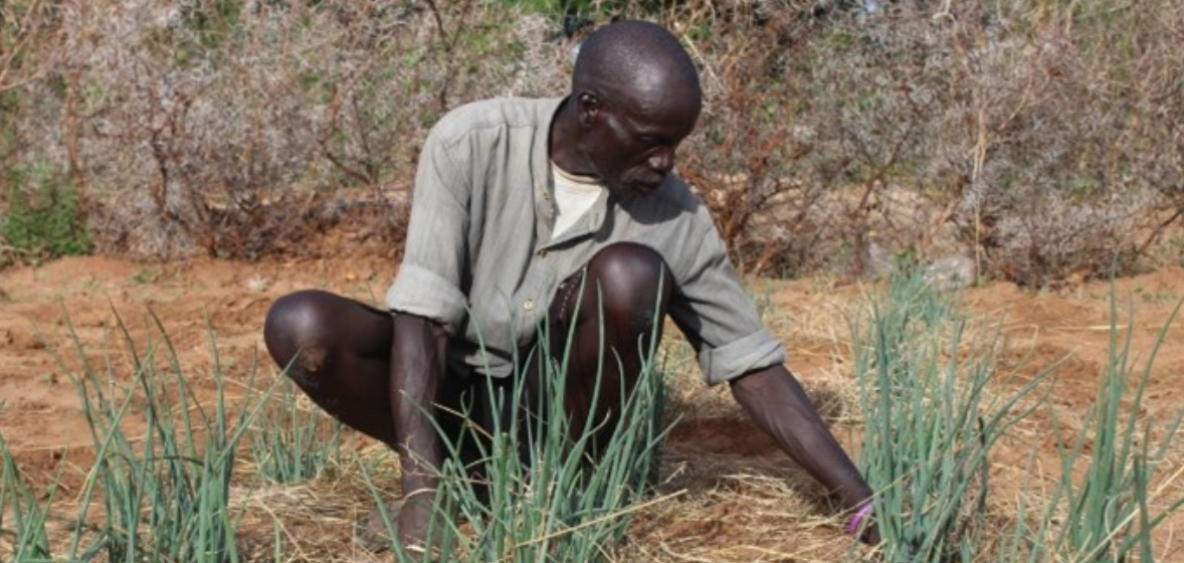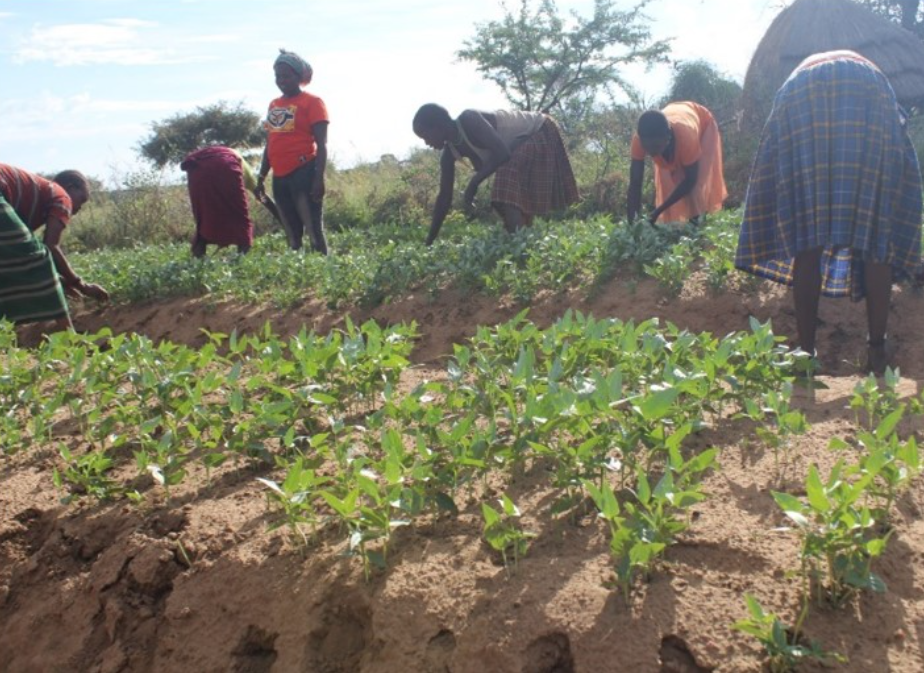 Longoria Joseph inspecting his backyard onion garden. (Credit: GARD)
Longoria Joseph inspecting his backyard onion garden. (Credit: GARD) Agro-pastoral farmer field schools are being implemented across Uganda by the Food and Agriculture Organisation of the United Nations, and farmers are not only implementing the lessons learned through group activities, but also in their home gardens.
Longoria Joseph is a resident of Lopeta Village in the Nabilatuk Sub-County, Karamoja Region of Uganda. He is 62 years old and lives with his family of 10, who he used to struggle to support before agro-pastoral farmer field schools (APFS) came to town.
According to the Food and Agriculture Organisation of the United Nations (FAO), “the Karamoja region, in North East Uganda, is one of the least developed regions of the country, and is highly vulnerable to resource-based conflict and climate change variability.” Chronic food insecurity and widespread land degradation are part of a vicious cycle that drew the Resilient Food Systems (RFS) Uganda country project, Fostering Sustainability and Resilience for Food Security in Karamoja Sub-region (F-SURE), to intervene on behalf of Longoria Joseph, his family and nearly 19 000 other beneficiaries.
The RFS Uganda project is led by FAO and the United Nations Development Pogramme, and implemented by the Grassroots Alliance for Rural Development (GARD) and the Ecological Christian Organisation (ECO). A key proponent from FAO across the RFS programme is the Farmer Field School methodology, which has made waves in 252 communities in Uganda so far. In Nabilatuk and Mourita Sub-counties, this includes 63 APFS, which each support 30 members and 5 watershed management associations, each comprising 20 community members. The APFS methodology strengthens the capacity of beneficiary farmers through tailored training on various Climate Smart Agricultural (CSA) practices as tools for adapting to climate variability.

Before participating in the Lopeta APFS,
Longoria did what he could to feed his family, including a stint as a cattle
raider before being appointed as a traditional priest at his village shrine.
Then, in 2021, ECO Uganda and local government representatives held a community
meeting to introduce the F-SURE project, and Longoria Joseph enthusiastically
signed on as one of the 30 members.
Longoria started attending weekly training sessions where the Lopeta APFS members learned good agricultural practices, including vegetable production and soil and water conservation techniques, and were provided inputs to get started. Lopeta APFS is now one of the primary suppliers of vegetables in Acegeretolim parish, and members are scaling the benefits by their personal motivation.
Longoria Joseph and another member have replicated the CSA practices they learned in their own backyards. “I am happy with my participation in the APFS group,” said Longoria. “I now plant onions. My family cooks onion leaves for sauce from my plot and this has enabled us to save on food costs.”
Each community and each member of the APFS across Karamoja Region has taken the methodology and scaled the benefits to suit their needs. RFS has previously reported on fostering inter-community peace and village savings and loans associations as community-level benefits, and Longoria Joseph’s story sheds light on the benefits at home. “I saved money from sales and I have been able to send my son back to school. He is now in senior two at Ariengesiep S.S.S in Nabilatuk District,” he proudly recounts.
Subscribe to our monthly newsletter to receive updates on stories directly from the field across all our projects, upcoming events, new resources, and more.